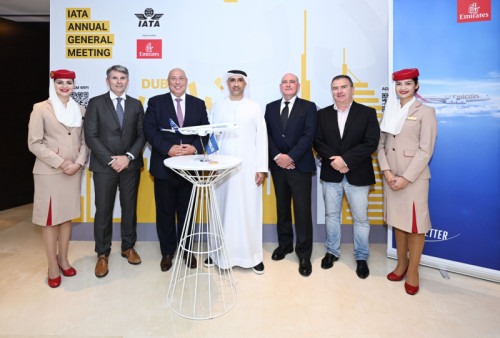Dubai, UAE: Emirates is collaborating with Airbus, the plane manufacturer, and IATA, the international airline industry association, to launch a new, improved training program for pilots transitioning to the A350 aircraft. This comes as Emirates prepares to receive its first of 65 A350s by mid-2024.
The program leverages Competency-Based Training and Assessment (CBTA) methods, combining the strengths of each organization. IATA provides its CBTA training principles and resources, Emirates contributes its operational experience and training facilities, and Airbus offers its decade-long expertise in A350 CBTA training.
Focus on Pilot Skills and Performance
This A350 CBTA program prioritizes pilot competency and behavior. It uses established CBTA methods that allow trainers to assess pilots throughout the program and make adjustments to enhance their performance. The program consists of two phases, with simulator training and evaluation spread over 20 days in 15 sessions.
Emirates’ Senior Vice President of Flight Training, Capt. Bader Al Marzooqi highlighted the program’s benefits like in-house training with highly qualified instructors, equipping pilots with world-class skills for global operations, and supporting the smooth integration of the A350 fleet.
Nick Careen, IATA’s Senior Vice President for Operations, Safety and Security, emphasized the unique opportunity to combine expertise for the most effective A350 pilot training. He also mentioned the potential for all three organizations to learn and improve their training programs in the future.
Capt. Stéphan Labrucherie, Airbus’ Head of Flight Training Worldwide, acknowledged the A350’s need for advanced training solutions. He stressed the importance of the partnership in providing Emirates pilots with the most comprehensive training for a successful A350 launch.
Emirates Prepares for A350 Arrival
The A350 type rating program is just one aspect of Emirates’ preparations for the new aircraft. Other departments, including Service Delivery and Engineering, are working towards a smooth A350 entry into service.
Background on CBTA and IATA
CBTA training offers efficiency and other advantages and has been a long-standing goal for the aviation industry. IATA supports this goal through its CBTA Guide for Flight Crew Training, which is aligned with international standards and offers resources for airlines and training organizations. Beyond flight crew training, IATA promotes CBTA for areas like dangerous goods regulations. The IATA CBTA Center assists various aviation organizations in developing CBTA programs for diverse functions, from ground handling to passenger services and cargo loading.
Photo:
Caption: From left to right: Capt Stéphan Labrucherie, Airbus Head of Flight Training Worldwide, Mikail Houari, President Africa & Middle East, Capt. Bader Al Marzooqi, Emirates’ Senior Vice President, Flight Training, Yann Reiner, IATA Head Training and Licensing and Nick Careen, IATA Senior Vic president, Operations, Safety and Security.
Photo credit: Emirates



























